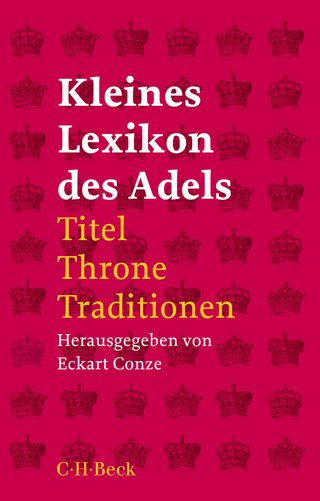
Creating Nationality in Central Europe, 1880-1950
Routledge (Verlag)
978-1-138-56759-7 (ISBN)
In the immediate aftermath of the First World War, Upper Silesia was the site of the largest formal exercise in self-determination in European history, the 1921 Plebiscite. This asked the inhabitants of Europe’s second largest industrial region the deceptively straightforward question of whether they preferred to be Germans or Poles, but spectacularly failed to clarify their national identity, demonstrating instead the strength of transnational, regionalist and sub-national allegiances, and of allegiances other than nationality, such as religion. As such Upper Silesia, which was partitioned and re-partitioned between 1922 and 1945, and subjected to Czechization, Germanization, Polonization, forced emigration, expulsion and extermination, illustrates the limits of nation-building projects and nation-building narratives imposed from outside. This book explores a range of topics related to nationality issues in Upper Silesia, putting forward the results of extensive new research. It highlights the flaws at the heart of attempts to shape Europe as homogenously national polities and compares the fate of Upper Silesia with the many other European regions where similar problems occurred.
Tomasz Kamusella is a lecturer at the University of St Andrews, UK. James Bjork is a senior lecturer at King’s College London, UK. Timothy Wilson is a lecturer at the University of St Andrews, UK. Anna Novikov is a research fellow at the Cologne Centre for Central and Eastern Europe, University of Cologne, Germany.
Introduction: Between the Non-National, the National and (Post-National) Europeanness
1. Upper Silesia in Modern Central Europe: On the Significance of the Non-National in the Age of Nations
2. Fatal Violence in Upper Silesia, 1918-1922
3. ‘Scoundrels’ and Desperate Mothers: Gendering German and Polish Propaganda in the Upper Silesian Plebiscite, 1919-1921
4. Bilingual Publics and Imagined Communities: The Upper Silesian Plebiscite of 1921
5. Creating a Citizen: Politics and the Education System in the Post-Plebiscite Silesian Voivodeship
6. National Indifference and National Radicalism in Weimar Upper Silesia
7. A ‘Volksdeutsche Resistance Movement?’ Local Responses to Nazi Policies Towards the ‘Nationally Indifferent’ in Eastern Upper Silesia, 1939-1945
8. Upper Silesia in the age of the ethnically homogenous nation-state, 1945-9
9. Writing Identity: The Upper Silesian Plebiscite and Uprisings in Historiography and Collective Memories
| Erscheinungsdatum | 29.08.2017 |
|---|---|
| Reihe/Serie | Routledge Studies in the History of Russia and Eastern Europe |
| Zusatzinfo | 4 Line drawings, black and white; 4 Illustrations, black and white |
| Verlagsort | London |
| Sprache | englisch |
| Maße | 156 x 234 mm |
| Gewicht | 453 g |
| Themenwelt | Geschichte ► Teilgebiete der Geschichte ► Kulturgeschichte |
| Naturwissenschaften ► Geowissenschaften ► Geografie / Kartografie | |
| Sozialwissenschaften ► Ethnologie | |
| Sozialwissenschaften ► Politik / Verwaltung | |
| Sozialwissenschaften ► Soziologie ► Spezielle Soziologien | |
| ISBN-10 | 1-138-56759-0 / 1138567590 |
| ISBN-13 | 978-1-138-56759-7 / 9781138567597 |
| Zustand | Neuware |
| Haben Sie eine Frage zum Produkt? |
aus dem Bereich


